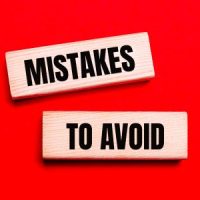Common Mistakes to Avoid After a Car Accident in Pennsylvania

Being involved in a car accident can be overwhelming. A car crash can leave you disoriented and unsure of what to do next. In the aftermath of a car accident, it is easy to make mistakes that can affect your health and ability to recover financial compensation. If you have been involved in a car accident in Pennsylvania, below are some of the common mistakes to avoid to protect your health and legal rights:
- Failing to Call the Police
One of the biggest mistakes people make after a car accident is not calling the police to report the accident. After a Pennsylvania car accident, call the police, regardless of whether you believe it is a minor crash. A police report provides an official accident record and can be vital in your compensation claim. If you file a personal injury claim, it can help establish liability.
The police report will obtain auto insurance information from the other driver. You will need this to obtain the other driver’s insurance policy contact information in order to make a formal claim demand. You will also be able to learn if the driver is uninsured, or potentially underinsured regarding your injury claims, which may trigger your own auto insurance policy to cover the difference.
2. Not Seeking Prompt Medical Attention
Another big mistake you should avoid after a car accident in Pennsylvania is not seeing a doctor immediately. Seek prompt medical attention even if you don’t experience any symptoms right away. Some injuries, like traumatic brain injuries and whiplash, may not show symptoms immediately after a car accident. Delaying medical treatment can worsen injuries and give insurance companies a reason to argue that your injuries are not as severe as you claim or are unrelated to the accident.
Further, you should attend all follow up doctor appointments. For an insurance company to evaluate your claim after you make a formal demand for compensation, they will be requesting your medical documents to determine the validity of your claim value.
3. Admitting Fault at the Scene
Avoid admitting fault to the other driver after a car accident. Pennsylvania follows the comparative negligence rule, meaning partial fault can reduce your compensation. Do not even apologize, as statements like “I am sorry” can be interpreted as an admission of guilt. Instead of apologizing, focus on ensuring everyone’s safety, immediately calling 911 and emergency personnel to the scene if anyone is injured, and exchanging insurance and contact information.
Let the police and insurance companies determine fault. An auto accident is a traumatic event, focus on the safety and well-being of all those involved in the accident and immediately getting everyone help for any injuries. An auto accident scene is not the time to play any blame games (let the professionals do that for you at a later time).
4. Neglecting Gathering Evidence
If you can take pictures and videos of the accident scene, take photos of the vehicles, traffic signs, road and weather conditions, and any visible injuries. Get the names and contact information of anyone who witnessed the accident. Also, get a copy of the Police Report. This evidence can help you prove your version of events later on.
5. Not Contacting an Attorney
Perhaps the biggest mistake you can make after a car accident is not seeking legal help or waiting too long to seek help. An attorney can help you gather evidence for your compensation claim. The longer you wait, the harder it is to collect fresh evidence. A skilled lawyer can protect you from insurance tactics and ensure you recover the compensation you deserve.
Moreover, an Insurance Company may request you to sign a Release of Claims before they make payment in order to avoid liability to make any further payments on injury claims arising from the auto accident.
6. Giving the Insurance Company a Recorded Statement Without a Lawyer
After a car accident, an insurance adjuster might contact you for a recorded statement. Even if the adjuster seems friendly, remember they are trained to protect the insurance company’s interest, not yours. Do not give a recorded statement without consulting an attorney who can advise you on what to say. If you do, you might say things that end up being used against you. Many questions that an insurance adjuster ask are intentionally designed to solicit information from you, or mislead you into certain responses, designed to avoid paying on a claim.
Contact Us for Legal Help
If you’ve been in a car accident, contact our Lehighton & Carbon County civil litigation attorney at Adam R. Weaver, Esq., for help navigating the claims process and protecting your rights.
Source:
mayoclinic.org/diseases-conditions/traumatic-brain-injury/symptoms-causes/syc-20378557
